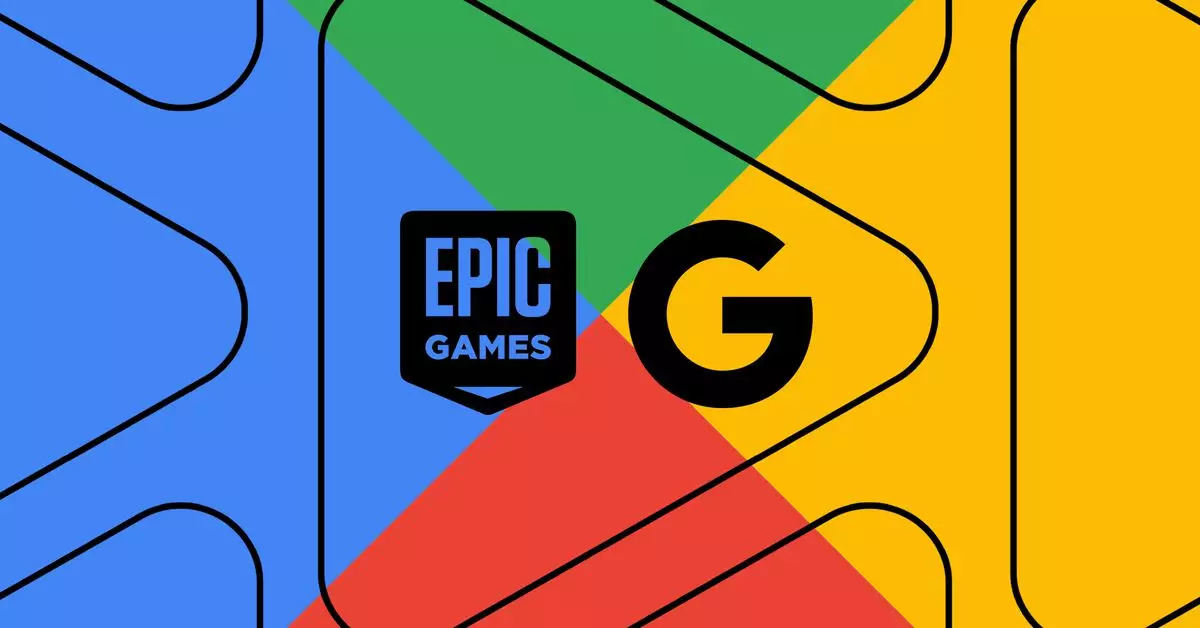The mobile gaming industry is at a significant crossroads, illustrated by Telefónica’s recent decision to preinstall the Epic Games Store on its new Android devices. This move marks a pivotal moment in the ongoing struggle for dominance in the digital ecosystem, specifically in the realm of app stores. As one of the world’s largest telecommunications companies, Telefónica’s collaboration with Epic Games—developer of the wildly popular Fortnite—suggests a shift away from the traditional gatekeeping practices of major tech companies. This partnership may help challenge Google’s monopolistic tendencies in the mobile app market, and it raises critical questions about the future of mobile gaming.
Telefónica’s union with Epic comes in the wake of a landmark legal victory for Epic Games against Google. In a case that has captured the attention of the tech world, a federal jury found that Google had established an illegal monopoly over the Android app market. Epic’s sugarcoated portrayal of its pursuit—claiming that it seeks to empower developers and consumers alike—has taken on new significance now that a major carrier is willing to support its ambitions. This collaboration could serve as a blueprint for other telecommunication firms contemplating similar actions, signifying a potential unraveling of established norms.
Epic’s decision to preinstall its store on Telefónica’s devices represents a strategic effort to disrupt the status quo dominated by Google Play. By providing consumers directly with an alternative store, Epic aims to carve out a larger share of the revenue generated from mobile games. This shift could pave the way for enhanced content diversity and offer developers various revenue-sharing models that challenge those imposed by the larger players.
While the legal intricacies involving Epic and Google are indeed noteworthy, Telefónica’s partnership speaks volumes about its desire to stay competitive in an ever-evolving market. The carrier’s backing potentially indicates an intention to diversify its offerings, appealing to a younger audience captivated by gaming culture. The arrangement could also serve as an attractive proposition for developers looking for a platform that supports their profit margins, moving away from Google’s traditional model.
Telefónica’s decision to preinstall the Epic Games Store is a calculated risk that offers both rewards and uncertainties. The preinstallation of the Epic store creates an additional playing field within the mobile ecosystem. However, this move raises concerns about the future relationship between the carrier and smartphone manufacturers like Samsung. Given that Samsung had previously been embroiled in a legal dispute with Epic, one wonders how this decision will affect their partnership dynamics going forward.
From a consumer perspective, the preinstallation of the Epic Games Store by Telefónica could vastly improve accessibility to games and alternative applications. For users of devices like the latest Samsung models, this means that downloading and playing popular titles, such as Fortnite, could become much easier, as the Epic Games Store will be readily available upon purchase of a new device. The implications extend beyond just gaming; it hints at a future where app discovery may be directed through multiple avenues rather than solely through Google’s services.
However, this also brings about discussions on privacy, data security, and the ethical concerns of preinstalled applications. Consumers might have reservations about bloatware or unwanted applications occupying storage space on new devices. Ultimately, it is essential that Telefónica ensures transparency during this process, providing users with options to either opt in or out of preinstalled services.
This partnership forms part of a broader narrative concerning the digital economy and the power dynamics that dictate the market. Telefónica’s decision to collaborate with Epic Games not only highlights the shifting landscape of mobile gaming but also underscores the opportunities available to telecommunication companies willing to challenge the existing paradigms. It stands as a critical moment in the ongoing quest for fairer competition in digital marketplaces.
The partnership between Telefónica and Epic Games can be viewed as both an opportunity and a challenge. It reflects a burgeoning acknowledgment of the need for diversity and fairness in digital commerce while simultaneously raising questions about distribution, competition, and corporate alliances in the tech industry. As we observe this dynamic unfolding, it remains essential for consumers and developers alike to stay informed and engaged with these developments that are shaping their digital future.

